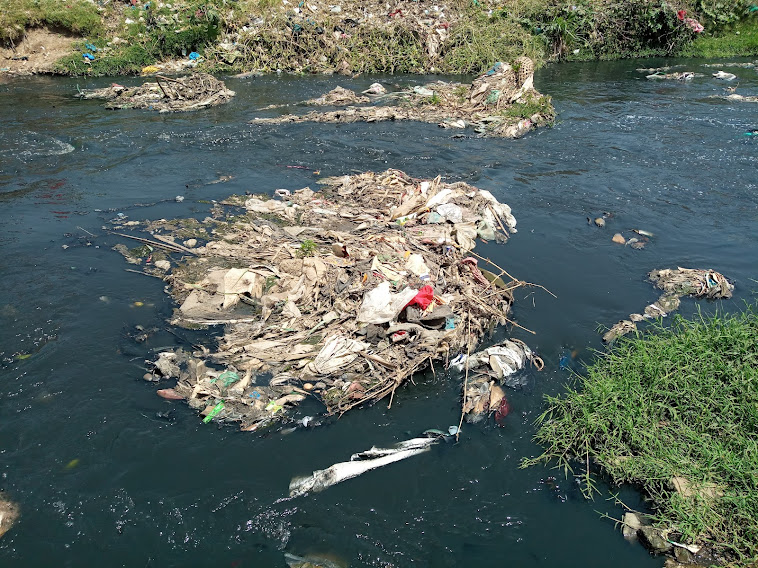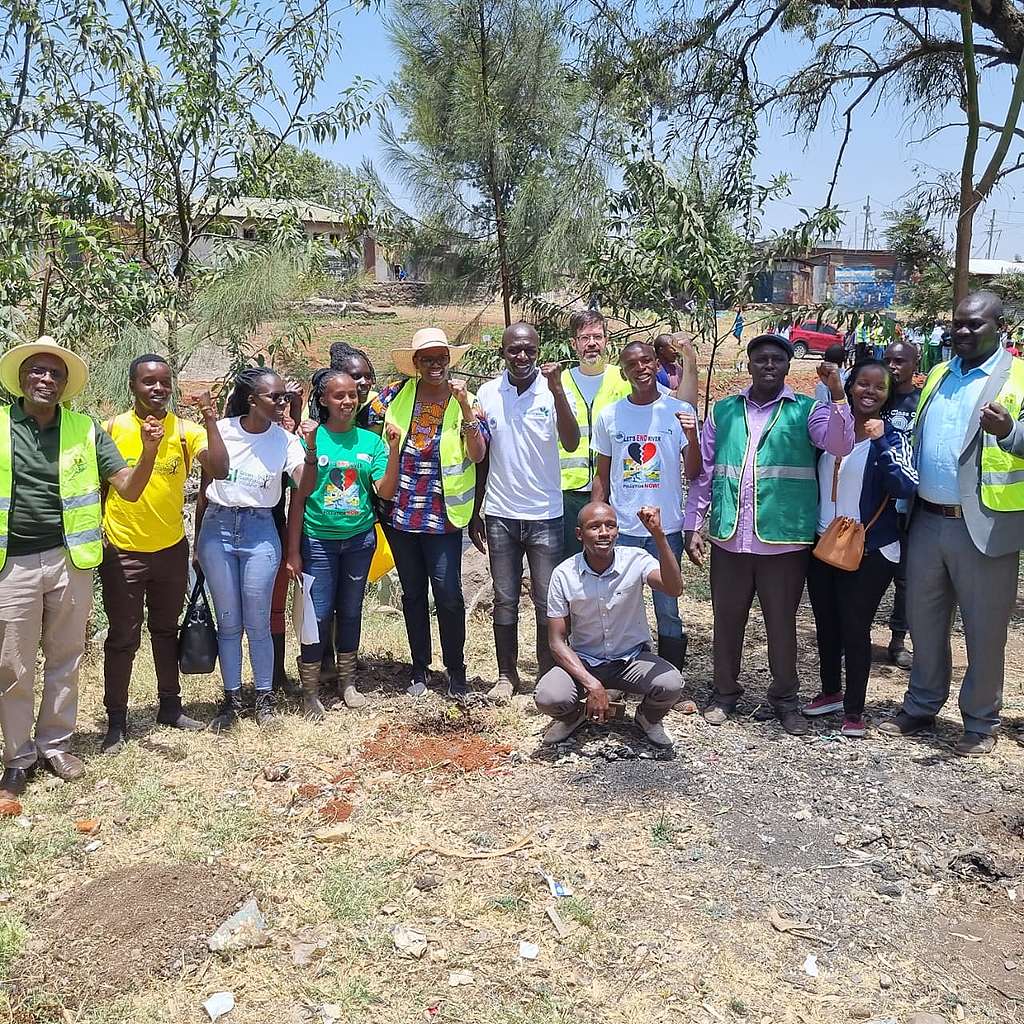
Scientifically, I mean naturally, water is colorless and odorless. But the water you find in Nairobi river will beg to differ. The river has become heavily polluted over the years due to various human activities such as dumping of untreated sewage and solid waste, industrial pollution, plastic pollution and agricultural runoff. The pollution has had significant impacts on the environment, the health of the people who live along the river, and the wildlife that depends on it.
The pollution has caused the river to become choked with garbage, debris and raw sewage leading to the spread of waterborne diseases and other health problems. The river is also highly contaminated with heavy metals and other toxic substances that are harmful to both humans and animals.
The pollution of Nairobi River has been attributed to a lack of effective waste management systems, inadequate enforcement of environmental regulations by the respective agencies and insufficient public awareness and education about the importance of protecting the environment.
On 22nd February 2023, the president of the republic of Kenya Dr William Samoei Ruto led the launch of the Nairobi Rivers Commission with an ambitious plan to clean up the river basin. The commission is part of the President’s plan to improve the city’s blue-green infrastructure and ensure that the people of Nairobi can enjoy the natural beauty of the river. Its mandate is to provide strategic direction, oversight and coordination of efforts towards the rehabilitation of Nairobi’s rivers.

Part of the Nairobi Rivers Commissioners pose for a photo with environmentalists after a tree planting session
During the launch, the president informed the public that the government of Kenya under the Ministry of Environment is partnering with the County of Nairobi to hire 12,770 young people and women who are going to participate in the cleaning of the river and planting of trees. The work is expected to commence on March 15, 2023.
Recently, there have been efforts to clean up Nairobi rivers to restore its health but they have all been futile. These include the Nairobi River Basin Program (NRBP), John Michuki-led efforts which spent a whopping 16 Billion Kenyan shillings, and the most recent, Nairobi Regeneration Committee, which was formed by the former president, Uhuru Kenyatta. So what makes the Nairobi Rivers Commission any different?
“The difference is that the Ruto administration has the political will, zeal and passion to see this through and reclaim the river from its current state,” Kenyan Deputy President Rigathi Gachagua said.
Kamanu Mbugua, the Founder Member Small Axe Environment Group which does rehabilitation of Gatharaini river was happy that actions being done at the grassroots level were being recognized and will be engaged as young people in the Nairobi Rivers restoration efforts. He is expecting that the Commission will involve people who live along riparian zones as they contribute to the pollution of the river. To ensure we reduce issues of plastic pollution, Kamanu suggested that deposit schemes, plastic tax should be introduced and the Extended Producer Responsibility should be enforced. This also comes at a time when Greenpeace is pushing for a Global Plastics Treaty which will ensure a holistic approach to ending plastic pollution.
Kaluki Paul, Africa’s Regional Coordinator for Youth4Nature and project lead, INUKA expressed his confidence that having the commission in place is the right step towards the solutions needed for Nairobi Rivers especially through adoption of the rivers and reclamation. He hopes that the commission members which has youth representation, experts and older people will work collaboratively to give the leadership needed for us to see Nairobi rivers reviving again with biotic life and kids enjoying the ecosystem without having to think of syringes in the water and the river as a source of death as fetuses are being trashed in the river after abortions.
As we wait for the commission’s work to kick off, people continue to have mixed expectations. This also comes in the wake of a petition urging the government to reroute a proposed sewage line through Ngong Road Forest along one of the Nairobi river’s tributaries. So can we trust them?
Into the bargain, one of the commissioners, the former Kiambu County Governor Ferdinand Waititu, was against the demolitions of houses along riparian zones by the previous Nairobi Regeneration Committee and was quoted saying “I do not support the issue of demolitions. If your building is close to a river, you should incur the costs of having the river moved a little further.” What’s more, the Law Society of Kenya (LSK) and Transparency International Kenya are in court challenging his appointment citing integrity issues.
From previous experiences, the Kenyan government has always promised to give its people slices of bread but end providing pieces of stones, will it be different this time?
Kiptoo Chemoiwo
Climate Change and Sustainability Enthusiast
